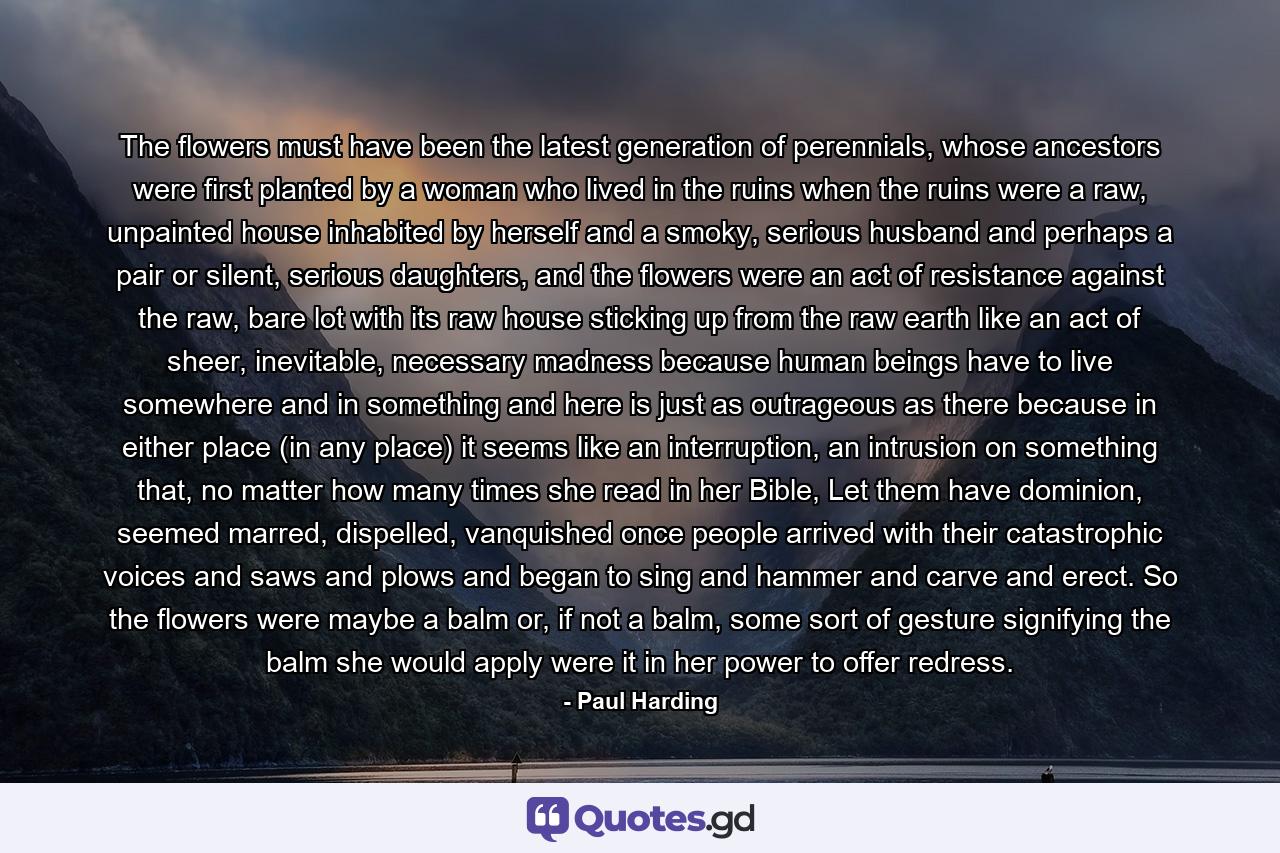The flowers must have been the latest generation of perennials, whose ancestors were first planted by a woman who lived in the ruins when the ruins were a raw, unpainted house inhabited by herself and a smoky, serious husband and perhaps a pair or silent, serious daughters, and the flowers were an act of resistance against the raw, bare lot with its raw house sticking up from the raw earth like an act of sheer, inevitable, necessary madness because human beings have to live somewhere and in something and here is just as outrageous as there because in either place (in any place) it seems like an interruption, an intrusion on something that, no matter how many times she read in her Bible, Let them have dominion, seemed marred, dispelled, vanquished once people arrived with their catastrophic voices and saws and plows and began to sing and hammer and carve and erect. So the flowers were maybe a balm or, if not a balm, some sort of gesture signifying the balm she would apply were it in her power to offer redress.
